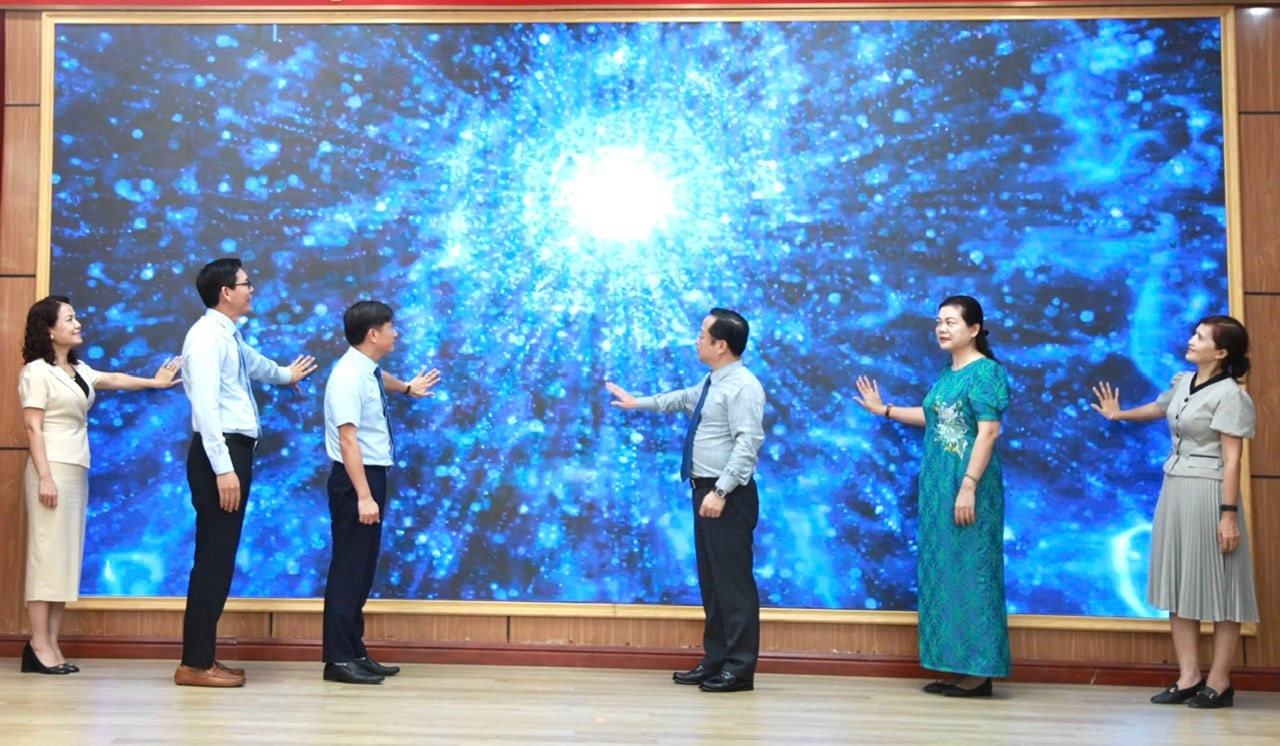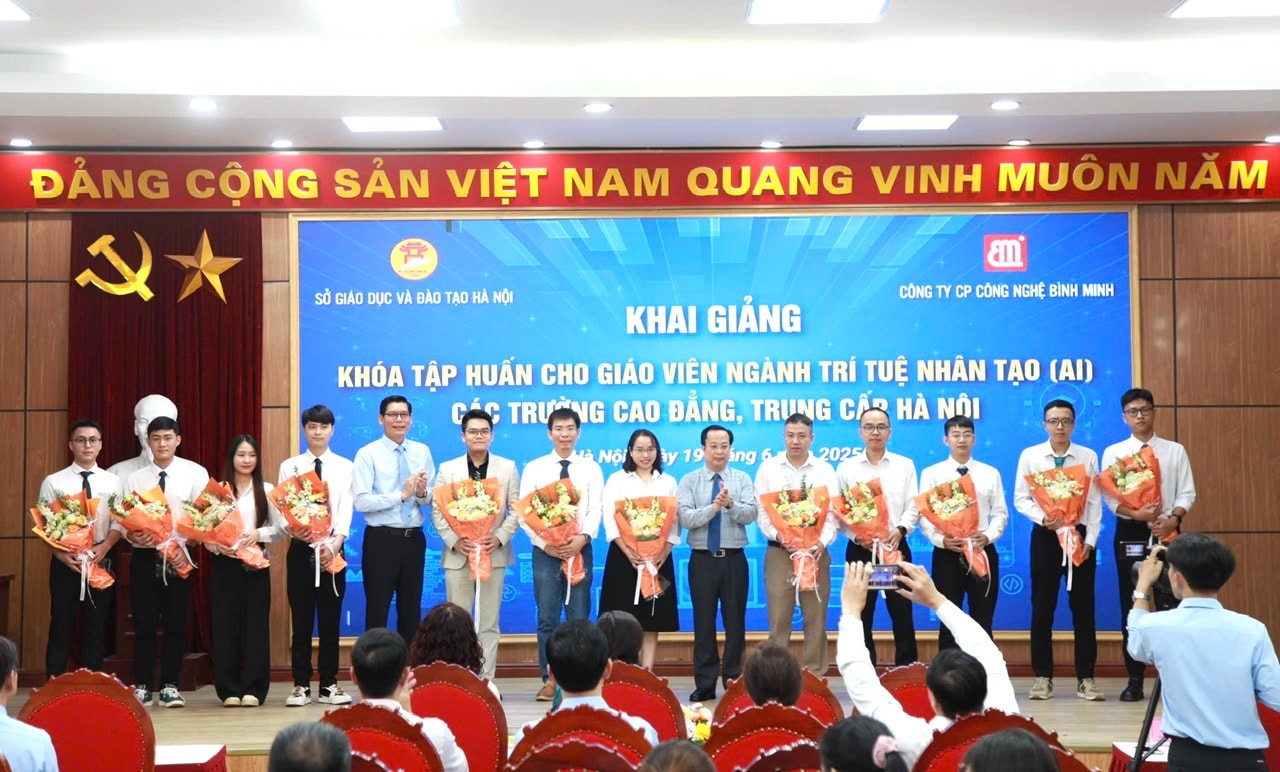As part of efforts to implement Resolution No. 57-NQ/TW issued by the Politburo on December 22, 2024, outlining the national strategy for science, technology, innovation, and digital transformation, the capital’s education sector has launched a key training program targeting vocational educators.
Running from June 19 to July 10, 2025, the course brings together 93 teachers from six public vocational education institutions across the city. Participating schools include Hanoi College of Economics, Technology and Engineering; Hanoi College of Information Technology; Hanoi Vocational School of Mechanical Engineering No. 1; Hanoi Vocational School of Transport and Public Works; Hanoi College of Electronics and Refrigeration; and Hanoi College of Industrial Vocational Training.
The program aims to strengthen educators' capacity in digital skills and innovation, contributing to Hanoi’s broader digital transformation agenda.

Delegates at the event.
Speaking at the opening ceremony, Director of the Hanoi Department of Education and Training Tran The Cuong emphasized that the rapid development of artificial intelligence is opening up many new opportunities to innovate teaching methods, assessment, and educational management. However, it also places high demands on teachers in terms of expertise, technological skills, adaptability, and innovation.
Cuong affirmed that Resolution No. 29-NQ/TW on the fundamental and comprehensive reform of education and training, along with the Government's national digital transformation program and the strategic orientations for the development of education in the Capital through 2030 with a vision to 2045, all clearly identify the pivotal role of the teaching workforce in driving educational reform. Approaching, mastering, and effectively applying AI in teaching and management is an important objective.

Delegates at the event.
The ongoing digital transformation training course for vocational educators in Hanoi is designed to equip teachers with foundational knowledge and skills in artificial intelligence (AI), contributing to the broader goal: “Each teacher is a digital citizen, each classroom is a digital education environment.”
Speaking on behalf of the trainees, Pham Truong Sinh, Head of the Information Technology Department at Hanoi College of Electronics and Refrigeration, emphasized the importance of AI in modern education. During the 2024–2025 academic year, the college organized internal training on AI applications in teaching and professional tasks for its entire faculty and staff. As a result, AI tools have been widely adopted across the school’s activities, significantly enhancing work efficiency.
Sinh noted that the school’s training programs have been updated to reflect AI integration in key areas such as office informatics, graphic design, application programming, and data analysis. Significantly, starting from the 2025–2026 academic year, “Digital Competency” and the module “Artificial Intelligence” will officially be included in the school's curriculum, marking a major step in aligning vocational education with the demands of the digital era.
"This training course is highly meaningful as our school is actively seeking and mobilizing resources to promote structured and effective AI integration. My colleagues and I will make the most of this learning opportunity to acquire and refine knowledge of AI and related areas, and apply it effectively in our professional work, thereby laying a solid foundation for the development of the AI sector at the intermediate and college levels," said Sinh.